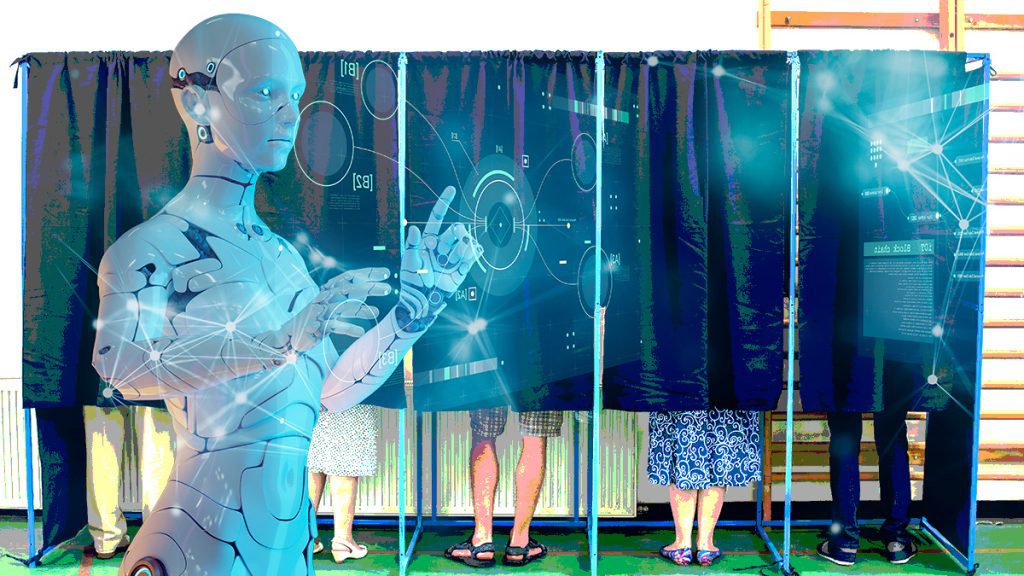
To ensure the integrity of the democratic process in the elections in the age of AI, constitutional changes are needed to establish a regulatory framework.
- The constitution should strengthen media literacy.
- Hold the people that are implementing fake news accountable for the misuse of AI in politics.
Let’s take a trip to the future, shall we? It’s the year 2024, and the presidential election is right around the corner. But guess what? Things are different this time around because artificial intelligence (AI) has taken over the electoral process.
Inventing new ideas must be scary to anyone. Don’t panic, let me tell you that AI has the potential to benefit the election process in a big way. But there’s a catch. The spread of fake news and misinformation will be an issue and a burden. To add up, this issue can’t be prevented, yet interference can be made we need to keep an eye on things and ensure that the election remains fair and transparent.
The spread of fake news and misinformation has become a prevalent issue that the age of AI can magnify. So, what is the potential impact of AI on elections, and what are the interferences needed to ensure the integrity of the democratic process?
AI and Elections
The use of AI in elections can have both positive and negative effects. AI can analyze vast amounts of data in real time, providing insights into voter behavior, identifying patterns, and predicting outcomes. The age of AI can also improve the accuracy and speed of the vote-counting process, ensuring that the results are delivered more efficiently.
However, the dark side of AI in elections cannot be ignored. AI algorithms can be programmed to spread fake news and misinformation. Deepfake technology can create realistic videos of politicians making statements they never said, leading to a severe impact on voters’ decisions. These technologies can also be used to manipulate social media algorithms, leading to increased exposure of false information. In some cases, AI-generated disinformation campaigns can target specific voter demographics, making it challenging to distinguish the truth from the lies.
Ensuring the integrity of the democratic process in the face of such powerful tools for spreading fake news and misinformation requires a constitutional change. The first change should be to establish a regulatory framework that holds the people that are implementing fake news accountable for the use of AI in politics. The regulation should mandate transparency in the use of AI, especially concerning political campaigns. The regulation should also establish consequences for AI-generated disinformation campaigns, including legal penalties for politicians who use such campaigns.
The second change to the constitution should be to strengthen media literacy. Voters should be educated about the risks of fake news and misinformation and how to identify them. It’s important to understand the impact of the information we consume and how it can shape our beliefs and opinions. With increased media literacy, voters can make informed decisions and avoid being swayed by AI-generated disinformation.
Final Thoughts
While the age of AI has the potential to revolutionize the electoral process, we must be mindful of the challenges it poses. It’s essential to work towards establishing a regulatory framework that ensures transparency and accountability, while also strengthening media literacy to combat the spread of fake news and misinformation.
We must also remember that technology is not a panacea for all problems. The integrity of the democratic process ultimately depends on the choices we make as a society. As we move forward into the future, let us strive to create a fair and transparent electoral process that represents the will of the people, free from the influence of fake news and misinformation.
Inside Telecom provides you with an extensive list of content covering all aspects of the tech industry. Keep an eye on our Impact section to stay informed and up-to-date with our daily articles.